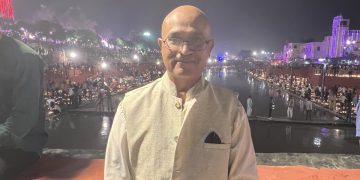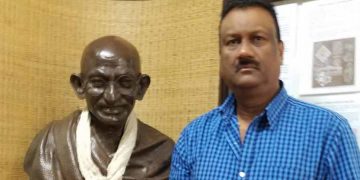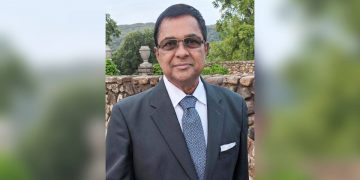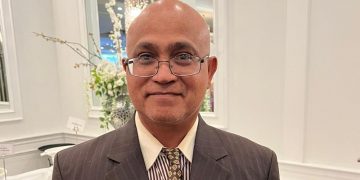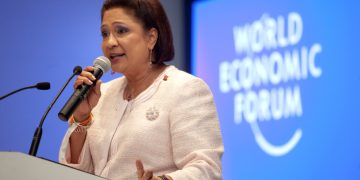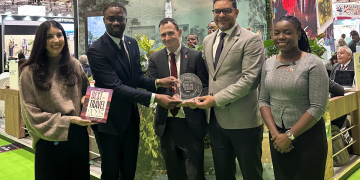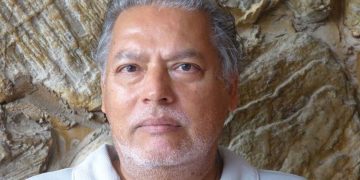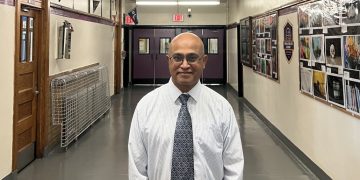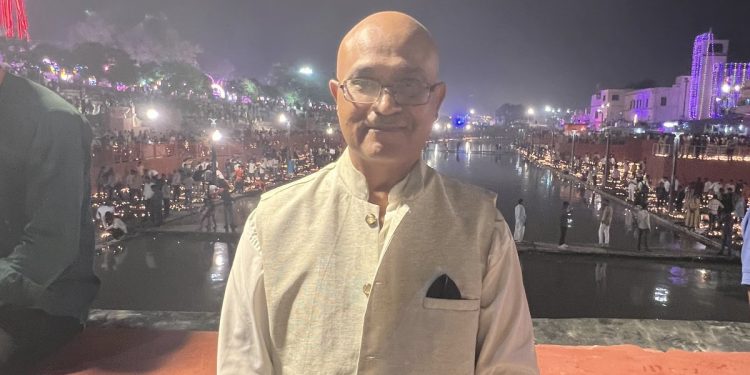The public queried how much was in the Indian Immigrant Repatriation Fund (IIRF) that Hamilton Green, a Burnhamite, estimated was a mere 5-10% of the cost of constructing the national cultural center (NCC) in 1972 for CARIFESTA.
Ravi Dev (Times Dec 1) quoted the celebrated British Guiana civil servant and respected writer as Dwarka Nath, in his book “History of the Indians in Guyana”, that “in 1966, $280,000 remained in the Fund”. Ravi contends that the fund would have been sufficient for the contractor Nabi and Sons to build the NCC of 1972/74. The NCC was built to be used for Carifesta in 1972 and was topped up in 1974.
It is not known whether that amount in the fund cited by Nath was in American or Guyanese currency. In 1966, the exchange rate was G$1.71. Assuming it was G$280K, that would be about US$164K. Money invested in a bank account was known to double every 8 to 10 years. Using that formula, in 1971, when the money was confiscated by Burnham and Green, it would have been about US$246K. In 1971, it was reported that the amount in the fund was sufficient to construct the national cultural center with left over change.
In cost estimates, Indian cultural organizations concluded that less than half the fund was enough for construction of three cultural centers. There was talk but not approval to donate the other half of the fund for construction of a national cultural center to be built at a site determined by Indian organizations.
Burnham confiscated the entire fund for the NCC and also chose its a location. Indian organizations vehemently protested against the expropriation of the fund.
Using the investment formula of doubling of the fund every 8 to 10 years, fifty years later, the projected amount would be about US$246 times 5 for a total of at least US $1.2M. Ravi used a compounded inflation rate, and came up with a figure of at least US$800,000. Regardless of the figure, it was a substantial amount. It cultural centers were built with less than half of the amount of the fund, as estimated,
Ravi penned that in 1966 after independence, the PNC government appointed a committee “to recommend how the IIRF should be used for the benefit of the surviving immigrants and their descendants”. In the National Assembly Debate on Estimates of 20th January 1970, in the presence of Burnham and Green, Member of Parliament Reepudaman Persaud highlighted the Government Committee’s recommendation on “the creation and maintenance of at least one centre in each county of Guyana, of the culture of the country of origin of the East Indians in Guyana, the total cost of construction of the centre not to exceed fifty per cent of the capital sum available to the Trust.” In other words, less than 50% of the fund was more than sufficient to build the three proposed Cultural Centers.
 Ravi also cited Nath that the Commission recommended three Indian Cultural Centres (ICCs) be established in the three counties.
Ravi also cited Nath that the Commission recommended three Indian Cultural Centres (ICCs) be established in the three counties.
The Maha Sabha, which Ravi noted had not yet rigged their internal elections to produce an executive aligned with PNC, said: “While not opposed to a part of the Fund being used for a “national” center in Demerara, there should be Indian Cultural Centres in Berbice and Essequibo. Other organizations demanded the IIRF be used only for ICCs. The money was legally owed to the descendants of Indian Immigrants, penned Ravi.
The PNC government confiscated the entire fund to build the NCC. All Indian organizations unanimously objected as did Dr Jagan and the PPP.
If built then, each of the three Indian cultural centers would be valued at over US$1 M today. The value of the NCC today, built by the IIRF in 1971/72, is estimated at over US$10 M.
Green referred to the PPP government that raised the fee for use of the NCC as cultural barbarians. Is that a code term for an entire race? After all, Green never supported putting a plack at the NCC with the words “built by Indian Immigrant Repatriation Fund”.
Some 53 years after expropriation the IIRF that was used to fund the construction of the NCC, there is yet an apology from the government or an acknowledgment with a plack or an offer to build regional cultural centers with money owed to the Indian community.
